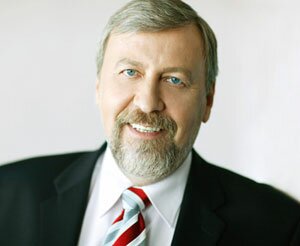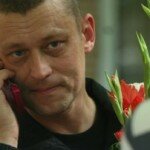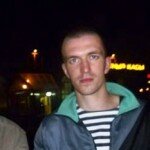
The former presidential candidate, the leader of „European Belarus”, Andrei Sannikov appeared in the pages of the portal “EUobserver” with his article entitled “The abduction of Europe”.
Sannikov writes in his article that currently the USA is not engaged in promoting democracy in Europe. According to him Europe returns to the Realpolitik mode of 20th century, dating from an era of two opposing systems, two different ideologies. This is a policy based on fallacy. It is a path that is harmful for the EU.
Adriei Sannikov says that European democracy is increasingly becoming a product for purely domestic consumption. It is in full effect in the EU, where politicians, journalists, government officials and ordinary citizens alike are more than happy to benefit from it, and it grinds to a halt at the EU’s boundaries. Democratic principles prevail inside the EU: independent courts protect human rights from encroachment by other individuals as well as governments. Outside the EU, one can conveniently forget about principles and deal with dictators.
The policy that Vaclav Havel described as “the sinister experience of dictator appeasement,” is now called a “policy of engagement.” This is precisely what the EU is offering Lukashenko, the man whose regime is responsible for disappearances and murders of opposition leaders, journalists, mass human rights violations, as well as destruction of national culture, history and language.
According to Sannikov the abduction of Europe started with Lukashenko. The foundation of Europe’s last dictatorship was laid in Belarus precisely in the 1990s when Europe lived through its best period of great expectations, enlargement and common values. Meanwhile Lukashenko achieved a successful coup d’etat (disguised as a referendum) and assumed total power in 1996.
The EU responded by suspending relations with the regime, hoping that the next election would be fair. Popular opposition leaders who enjoyed broad support were murdered in 1999: Gennady Karpenko, Yury Zakharenko, Victor Gonchar.
Every one of them could have won an election against the dictator. The EU did not respond to that. The Council of Europe conducted an investigation years after the murders. In the meantime, the dictator was building, consistently and methodically, modern Europe’s toughest totalitarian system in Belarus.
All FSU regimes, notably that in Russia, carefully studied the approaches and methods tested by the dictator in Belarus. They did not simply study them, they also adopted the “best dictatorship practices” for their own use.
It is abundantly clear how Lukashenko’s practices are currently implemented in Russia. Among other things, Russia is watching how quickly Belarus can patch up its relations with the EU after yet another, more vicious spat.
It could be said that Europe created Lukashenko, and Lukashenko created Putin’s Russia.
A united Europe, with active involvement by the US, would have been a guarantor of restoration, reinforcement and development of democratic values, principles, and standards in the post-Soviet region. This is necessary for maintaining the Transatlantic partnership, for FSU nations, and for Europe itself. However, this is not happening.
No “Realpolitik,” no amount of “engagement” and overtures towards dictators are going to create predictable, safe neighbours for Europe. Dialogue and engagement with these regimes legitimises them and lets them into the EU where it is the EU’s systems and values that corrode. Remember, there are fewer free countries in the world than five years ago.
Only a direct, honest, uncompromising assessment of the dictatorship’s actions, only an honest, strong, and brave stance in response to human rights violations by oppressive and dictatorial regimes, and bold support of democratic movements should help Europe defend its values and avoid new conflicts and a real “clash of civilisations”.
Whole article.
svaboda.org




